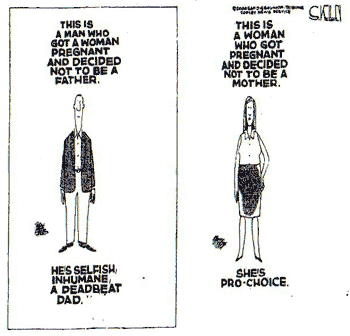Did she do it? Did she not? Does it even matter?
Does this look like a guilty mother to you? Wait... Maybe not the best example...
Ladies and gentlemen, if you haven't heard about the Casey Anthony case, I envy you. I truly do. Because quite frankly, I'm sick of hearing about it. near 24 hour coverage on Headline News, constant coverage during the trial,
THIRTEEN FRIGGIN' TOP STORIES ON CNN.COM,
Facebook groups in response to the verdict, it's all a bit much, don't you think?
Before I move on the the meat of this article, let me get something out of the way: the verdict was made. Get over it. You may not agree with it, but it was final and legal. The prosecution's case
sucked, a jury of her peers found her innocent (and it was a well diversified jury too, by the way. It reflected the people of the community well), and she still served time for lying to the cops. Yes, this is justified too. She was arrested and held for murder. She sat there for three years.
Three years behind bars for a crime she was acquitted (not found innocent) of. The bigger injustice was if she didn't get time served. The defense created reasonable doubt, and that's all that was needed. The American justice system was set up to protect the innocent, and while some people may slip through the cracks and get through loop-holes, it works (mostly). Live with the verdict. It's final.
That being said, why the heck was the case so big? Kids die all the time. Mothers kill their children all the time. Huge volunteer searches for bodies happen often. What made this case so special? The news media. Without them, this would have been an open and shut case. Without them, the case could have been settled out of court, or taken longer to get to court so the prosecution could get more evidence, money could have been saved finding an impartial jury, court proceedings could have gone smoother, and overall real justice could have prevailed if the cameras were just gone.
Everyone had to show off for the cameras. The stinkologist was brought in, the charge was murder one instead of something lesser, the case was brought to court way too soon, all for some of the lime light. And the media ate it up. Here was a woman that was easy to make people hate, easy to vilify, and a case that could be made into a top headline for weeks to come. The whole thing played out like a bad daytime soap opera, and had a similar audience. Why wouldn't the news media jump on it?
In the process however, they turned people into an angry mob. They strung the viewers along, leading them to one and only one conclusion: Casey Anthony
is guilty,
should be found guilty, and
will be found guilty. As far as the news hounds were concerned, there was no other alternative. And of course, their simple-minded viewers who had every bit of the case spoon-fed to them with a little added spin and conjecture went right along with it. When the great jury that would surely find the woman guilty
acquitted her, it was suddenly a bad jury, a stupid one, and, as one woman put it, a jury that should "be shunned by society." People wanted a retrial (
double jeopardy anyone?)
, people wanted
justice! This jury didn't do justice! They heard a month's worth of testimony, saw all the evidence, deliberated for 10 hours, and analyzed all the facts without the media explaining it to them! How could they have come to an informed and correct decision?!
See the problem here? Outside the courtroom, it's all spin. It wasn't impartial. If anyone thought that maybe, just
maybe Casey may get off, they were ridiculed or censored. Is that any way to do the news? (Full disclosure,
I may have a bit of a problem with the media). Not only that, this whole civil suit for defemation, it's an attempt at double jeopardy. "Even Al Capone went down for tax evasion." Yes, but he was tried once (in that case) and even then the punishment was too strong (for tax evasion). To get Anthony on a civil suit just because she didn't get the murder charge is a last ditch effort by the mobs to "see that justice gets done."
Then there's the after-trial part. This part just dumbfounds me. Casey Anthony was acquitted. It's finally over, right?
WRONG! All of a sudden the media goes into overdrive. The cash cow is almost dry! Time to milk it for all it's worth before it's cold, dry carcass is unceremoniously kicked to the curb. Huge speculation on
if Casey will do porn now, how much she can get for a book and/or movie deal, how the mobs are going to attack her when she gets out, and, here's my favorite, a countdown timer for when she goes "free," as if she hasn't already paid three years behind bars for a crime. She's not going free. She's paid her dues, and with the mob that's going to follow her for the rest of her life, she may as well be in prison for the rest of her life.
It's all a huge problem that could be solved it we just let the justice system do what it's supposed to do. No cameras, no media, no hype, just prosecutors, defendants, cops, evidence, and the law. As soon as anything extra is added, is justice really done? Can the system really properly compensate for all the cameras and hype? Of course it can't! Jurors need to be impartial. With the spin of the media, they form too many judgements before they even get to hear the case. With mobs of people on the outside, there's pressure on the jurors to give the popular decision, not the proper one. Not to mention the vigilantes that Nancy Grace herself could have spawned (I fully expect at least one murder attempt within three months of when Anthony gets released).
So, when it gets down to it, where's the justice? Was it not done because Anthony was acquitted? Or was it not done because the justice system wasn't allowed to work properly? You have my opinion. You make your own from here.
So what do you think? Was justice done? Or was it spat on? Am I right? Or did I miss something? Tell me what you think! Leave a comment or contact me to share your thoughts!
I hope you enjoyed this article! The topic was chosen by fans of this website (last week, this topic was chosen). If you want to get involved, join the community on Facebook or get a hold of me on Twitter! Your voice is just as important as mine in this corner of the internet!












